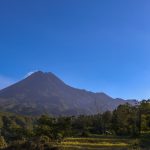By Elyse Ndayihimbaze, Innovation and Program Development Manager at Help a Child Burundi.
Part 1
Charity fatigue
In the past decade, new humanitarian crises and natural disasters have emerged on a more regular basis. The international community has failed to address them all at the same time, leaving already fragile states weaker and in need of more recovery support. One of the poorest countries in the world that is often overlooked is Burundi. The Burundian population has endured cycles of civil wars and unrest, extreme poverty, chronic malnutrition and of late, climate related disasters. Until now, the nation has not been well equipped to address these challenges. How do the people of Burundi, and the organizations that aim to support them, keep their hopes alive in such difficult circumstances?
We’re all in the same boat
Often awake before the sun rises, Tite goes for a walk to fill up jerry cans with water prior to the arrival of other solidarity group members. As birds fly from the darkness into the light, Thérèse, the solidarity group leader joins him, and they begin to review key activities for the day. We are visiting the Sobel Internally Displaced Person (IDP) relocation site, not far from Bujumbura, Burundi’s largest city. Previously a state-owned farmland, the site is now hosting the largest community of IDPs in Burundi.
Tite leads the group into devotions and a word of prayer, thereafter, the weekly planning meeting begins. 2 hours of hard work pass and as solidarity group members leave the farm, Thérèse invites us to talk to Maria, one of the members of the group.
“I was raised as an orphan,” Maria expresses. “When I grew older, I met a man who became my husband. We had a son, a second, a third and a fourth one together but then one day, everything we had built began to fall apart. A group of militias attacked our neighborhood, and injured me.” In this incident, Maria broke her left hand but managed to flee and survive. Her eldest son whom she lives with today was equally lucky, but sustained serious injuries. Unfortunately, the blood of her other 3 children became one with the ground in the process. Maria and her son and husband fled to DRC. She did the best she could to heal but up to date she can only work for a few hours at a time. “After numerous unsuccessful attempts to recover, my husband left me for another woman with whom he could live and labor. I returned to Gatumba with my son in tears and hopelessness as my luggage.”
Climate related disasters
From 2020 up to 2021, Burundi experienced cycles of torrential rains, heavy winds and floods which resulted in increased human displacements across the nation. Today there is a total of 68,810 persons displaced due to climate change in Burundi. More are expected to join this number if the nation fails to find a lasting water management system.
Where Maria looked to find hope, floods in Gatumba (in the East of Burundi) worsened the situation causing her to become homeless. “My house was destroyed and our family farm in Gatumba was flooded.” Thérèse shares trying to comfort Maria. Next to her, Tite also opens up, “likewise, we left our house in a hurry, when we returned to see our home, it was no more, same goes for the crops we were expecting to harvest. All household items were gone. The only thing we had left were the clothes we wore.” It was a devastating season for IDPs to have no opportunities to make their talents useful nor make ends meet for their children.





